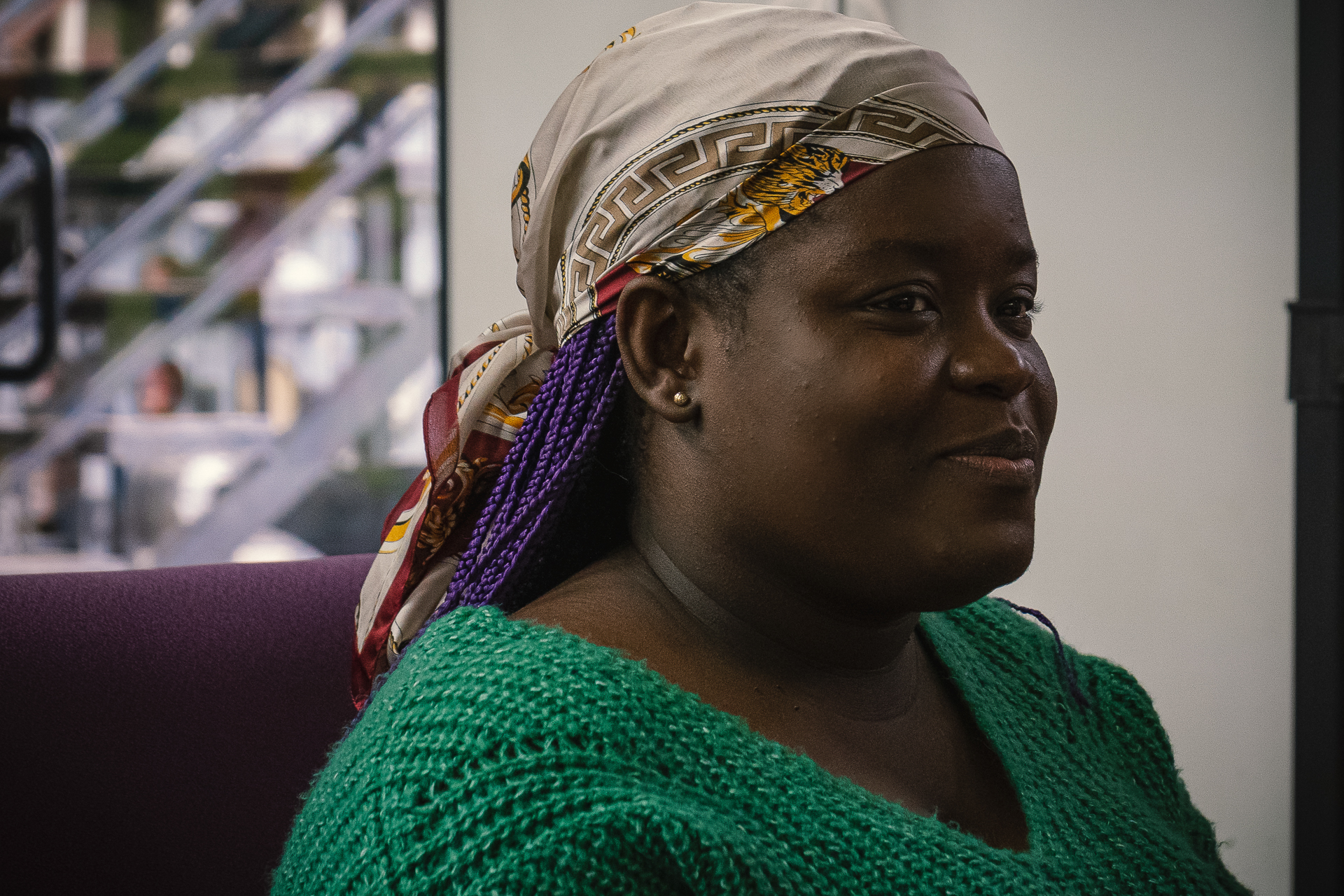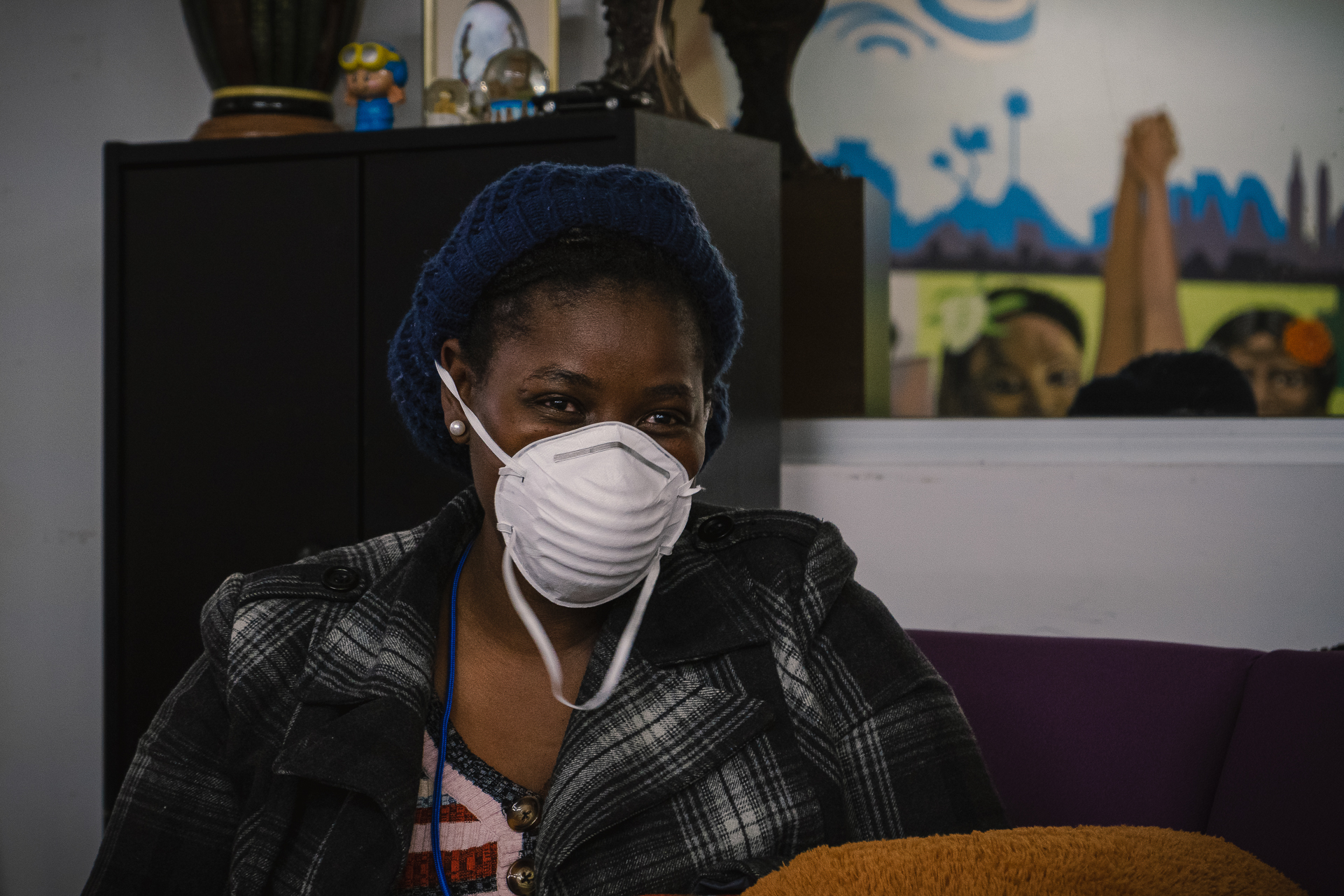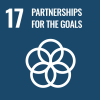Tijuana, 27 June 2022 – Jessica, Jesse, Katherine, Beto and Josiane have finished the day's activities at Espacio Migrante, a shelter that helps migrants in Tijuana. They are part of a team working on a creative project promoted by the institution known as "Migrant Telenovela". The project is developing a skit called Teacher, Veterinarian, Astronaut.
Telenovelas are famous in many Central American countries including Mexico. This presented an opportunity to leverage on and create a tool that would provide information on access to services such as education for their beneficiaries – the idea to make this film was born from this.
The telenovela tells the story of Maleshka, a girl who dreams of studying and whose journey begins on the Suchiate River, on the southern border of Mexico and Guatemala.
"The story of the telenovela is that of a very strong woman, who leaves her country with her daughter and wants to go to a safe place,” says Josiane Moukam, a collaborator of Espacio Migrante as a leader of the African Community in Tijuana. “It is the life of the migrant woman, of the migrant girl... who are in the struggle for the right to education in a foreign country."

Jesse Valcin is a Haitian migrant who acts in the soap opera: "When you arrive in a city that is not your own (...) you have no one to support you... These are facts that you see in the soap opera." Photo: IOM Mexico/Alejandro Cartagena
"The telenovela has the function of informing, also [...] to make visible the obstacles that children face in the educational systems, but at the same time it presents a guide for migrants on access to information, which, unfortunately, is often what is most lacking," says Alberto Anaya, leader of the telenovela project.
To build the script, the team held different workshops with families and children, and even with the organization's staff, in order to hear their stories about the journey to get to Tijuana and the challenges they experienced along the way.
"We started doing workshops with the families and creating a script together with the producers,” explains Katherine Gijón, community organizer. “Each person told their story, created a story with their own experiences and we made a fusion of all of them.... There are going to be many approaches [in the story] that both parents and children will recognize."

For Alberto Anaya, project supporter, the “migrant soap opera” project aims at making visible the obstacles that migrant children have to overcome in order to enter the educational system in Mexico. Photo: IOM Mexico/Alejandro Cartagena
Jesse Valcin, the leader of the Haitian community in Espacio Migrante, along with her sister Jessica, recalls some of their experiences. "When you arrive in a city that is not yours, that is different from your culture, where you have no one to support you, what it is like to sleep on the street, to turn to organizations… These are facts that you see in the telenovela."
For Josiane, the telenovela is her own story. "Since I arrived in Tijuana, I slept on the street, and in the telenovela I played this part. The moment I did it, I embraced the part with all my heart, because it is my life... It was a very strong scene because [the character] doesn't see the people she could talk to, it was difficult.”
Teaching the workshops, finishing the script and filming took more than six months and numerous sacrifices. In all that time, the organizers had to learn scripting, makeup, and production.

Josiane Moukam, a migrant woman from Africa, tells how the film’s main actress stars as a strong woman who struggles to give her daughter an education in a foreign country. Photo: IOM Mexico/Alejandro Cartagena
Despite the difficulties, for the Valcin sisters the telenovela was a very special learning experience: "The day we saw the river scene, I thought: 'It's huge, all the things the migrants have gone through to get here.' If a person doesn't tell you, you're not going to know that ... It's an accomplishment and a lesson that I'm going to take away, because I didn't know they had gone through all that, it will be something I carry in my heart," says Jessica.
"It was fun to work and learn about wardrobe and hairstyling. It was nice to see everyone, with their own rhythm and personality, living their characters in the play. Every time we left a place, to see the achievement and that every part of the script is real," says Jesse, a psychology student who, along with her sister, supports Haitians by providing information on immigration regularization and teaching them Spanish.
For Katherine, a young Honduran woman, it was also a very important learning experience. "I began to love the project because I knew that what I was doing was the story that someone else had gone through.... I saw myself reflected, it turns out that a part of me was there. In the end I think we all, including the families, learned something."

The idea of making this film for migrants arose in a migrant shelter that is also an NGO. Those in charge of the shelter Espacio Migrante realized that the people staying there were interested in Mexican telenovelas, and decided to make one with migrants as the main characters. Photo: IOM Mexico/Alejandro Cartagena
Everyone points out that the telenovela is a gift from the migrant community to the migrant community itself. "It's a gift for the future generations that will come to Tijuana, who are going to need access to education," says Katherine. Josiane, a Cameroonian migrant, shares the same sentiment: "It's the gift we want to give, it's a gift with all our heart."
Something that enriched the production of the telenovela was the participation of the host communities. The work of volunteers in production helped shape the collection of stories. The achievement of this project is a collaborative effort from both migrants and the host community, something the team is very excited about.
Currently the telenovela is in the post-production phase as the shelter looks for funding to cover the respective cost and have it ready in April or May 2023.
The organization hopes that it will reach different cultural institutions, that it will be disseminated in activities such as the Global Migration Film Festival (GMFF) of the International Organization for Migration (IOM), and that it will serve as an efficient informative channel with which people can learn more about possible scenarios of the migratory reality.
Story by Juan Manuel Ramírez.


